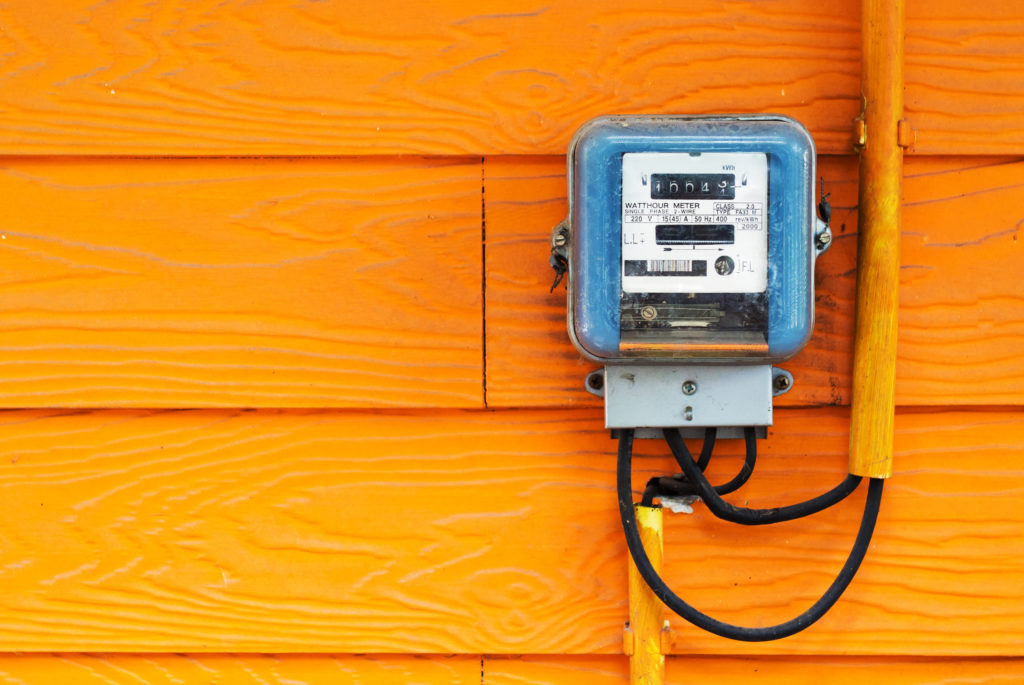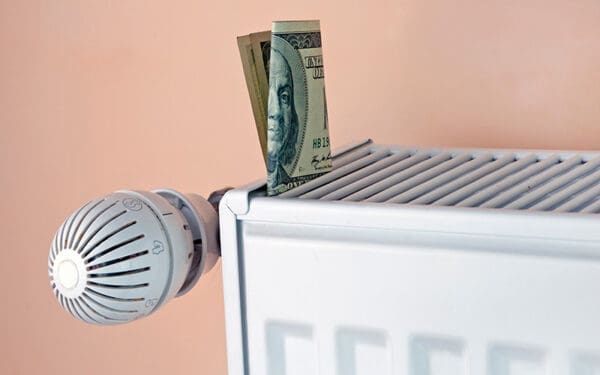
Home energy audits could be a good energy efficiency step if funded appropriately. Photo credit: Shutterstock.
This week, CLF joined with a host of partner organizations to lend support for Governor Charlie Baker’s home energy scorecard program.The program, outlined in H. 4371, An Act relative to consumer access to residential energy information, would require homeowners to undertake a home energy audit and include a home energy scorecard when they sell their property. This helps potential buyers factor the value of energy efficiency measures into the cost of a new home, and encourages adoption of energy savings measures.
CLF and our partners have also joined to strongly oppose using this bill to redirect funds from the Regional Greenhouse Gas Initiative (RGGI)—funds already being used for critical energy efficiency programs.
Investing in energy efficiency is unquestionably a good thing. We’ve been advocating for programs that improve energy efficiency in homes and businesses for years. Massachusetts can and should launch a home energy audit program — but without opening the door to a raid on important RGGI funds.
Massachusetts Needs Strong Energy Efficiency Programs
Buildings and homes devour energy. In Massachusetts, fully half of our state’s energy resources go towards cooling buildings in the summer and heating them in winter. In 2014, residential buildings alone generated over a quarter of the Commonwealth’s climate-damaging emissions. Our collective over-dependence on heating oil is a sizable part of our contribution to climate change.
Buildings also have huge potential to conserve energy. Energy efficient buildings save money for owners and renters. They also help us use less energy overall, so reduce the need for expensive replacements of the poles and wires that deliver electricity. And they play a critical role in cutting the Commonwealth’s climate pollution.
The Green Communities Act, passed in 2008, tackles the problem of emissions from buildings head on. It requires that Massachusetts pursue all energy efficiency options that are available, so long as they cost less than the energy that would have otherwise been used. CLF continues to advocate for improvements to existing programs. The home energy scorecard program adds a new tactic to the mix.
What’s a Home Energy Scorecard and How Would This Program Work?
The Massachusetts Clean Energy and Climate Plan for 2020 has recommended residential energy audits and scorecards to reduce carbon pollution and highlight the value of energy efficient homes. Governor Baker’s bill would accomplish this for homeowners. It would require that homeowners looking to sell one- to four-unit residences provide three things with their property listing:
- The results of an on-site evaluation of energy performance, looking at things such as lighting, insulation, and HVAC equipment;
- An energy scorecard, estimating annual energy consumption and costs, and rating the home relative to similar houses; and
- Recommendations for energy retrofits and weather-proofing measures, where needed.
Both buyers and sellers would then be connected to MassSave and other programs that provide financial incentives for energy efficiency measures. The idea is to encourage homeowners to increase their home value through energy efficiency and to provide buyers with a way to compare the efficiency of potential homes.
This initiative builds on existing energy efficiency programs and can be funded with little change to the current framework. So why does the bill also propose a wholesale restructuring of RGGI funds? It looks like an unnecessary effort to free up dedicated funds for other uses with less oversight.
Fund Home Energy Audits, but Keep RGGI the Way It Is
The Regional Greenhouse Gas Initiative (RGGI) is a regional cap-and-trade program designed to reduce carbon pollution from power plants. Currently, 80 percent of funds raised through RGGI must go to energy efficiency programs. This targeted investment provides the resources Massachusetts needs to meet the goals of the Green Communities Act and move the Commonwealth towards achieving its long-term greenhouse gas reduction requirements under the Global Warming Solutions Act.
The new bill eliminates that 80 percent requirement and allows the money to be redirected, not simply for the energy audit program, but broadly for “greenhouse gas mitigation and climate change adaptation.” Climate mitigation and adaptation are both important and require significant new investments in Massachusetts. However, the language of the bill would open a limited pool of money to virtually limitless allocation.
By opening up the state’s RGGI funds, the bill creates a slippery slope toward using this money for other purposes whenever it’s expedient – for instance, to cover state budget shortfalls. Experiences in other states have shown this to be a real problem. In 2015 in New York, for example, lawmakers used RGGI funds to close a budget deficit and pay for programs other than energy efficiency. This set a dangerous precedent and has hurt the state’s energy efficiency programs ever since. As recently as last month, Governor Cuomo proposed to transfer $23 million of the state’s RGGI funds to the state’s general fund. That’s not where this money belongs.
With minor changes, we can achieve the goals of the bill without broadly repurposing RGGI funds or jeopardizing existing energy efficiency efforts.
A Simple Fix for Funding
Massachusetts can fund the home energy audit without any big changes to existing energy efficiency programs. Let’s also create new funding sources for both greenhouse gas reductions and climate change adaptation – just not by opening the door to losing RGGI funds.
We need innovation and long-term investment in energy efficiency if we’re going cut our carbon pollution to the levels our changing climate demands. We can and must do better for Massachusetts’s communities.



